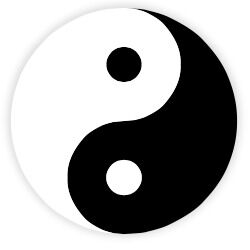Sleep
COVID-19 Sleep Recommendations
Science-based sleep strategies can help us cope during the pandemic.
Posted June 28, 2020

The first six months of 2020 have brought massive stresses. Just as it seemed we might be getting control of the pandemic, cases have started spiking again and some states that had opened their economies have had to start shutting down once more.
For some time, we have had evidence that the pandemic, not to mention other stresses such as climate change, protests, economic disaster, and governmental dysfunction, is taking a toll on our mental health. The economic impact of the pandemic alone may persist for many years in certain areas.
We know that sleep is important for coping effectively with stress and sleep is negatively impacted by stress. It appears that sleep has indeed been negatively affected for a great many during this time and the prevalence of insomnia is likely increasing.
During the Great Recession, insomnia increased as did use of sleeping medication (Modrek, 2015). Prior to the current economic situation, the Great Recession was the worst economic downturn in the U.S. since the Great Depression of the 1930s. Unemployment is associated with decreased mental health, and unemployment rose rapidly in 2008 and 2009. The job situation was slowly recovering up until the start of the pandemic. Of note, even for workers who remained employed during the Great Recession, both inpatient and outpatient mental health visits increased (Modrek, 2015). The impact was greater in businesses that had more layoffs. The pandemic poses not only economic challenges, as did the Great Recession, but also detrimental impacts on social support and activity levels due to the need for social distancing and sheltering in place.
A considerable amount is known about the basic mechanisms by which stress results in poor sleep and poor sleep in turn results in increased stress and anxiety. For example, sleep loss is related to increased anxiety due to “impaired medial prefrontal cortex activity and associated connectivity with extended limbic regions” (Ben Simon, Rossi, Harvey, & Walker, 2020, p 100). Deep sleep, on the other hand, has a different effect on these same brain networks in that it relieves the effect of stress and decreases anxiety (Ben Simon, et al., 2020). It is easy to see that stressful times such as these make it difficult to get good sleep, while coping with stressful times such as these is greatly helped by getting healthy sleep. So how do we get good sleep in such stressful times?
Due to concern about the impact of the pandemic on sleep, the European Cognitive Behavioral Therapy for Insomnia Academy issued guidelines for coping with pandemic-related insomnia (Altena, Baglioni, Espie, Ellis, Gavriloff, Holzinger, Schlarb, Frase, Jernelöv, & Riemann, 2020). They noted that, while most aspects of being more confined to home during the pandemic will prove challenging for sleep, there are possible ways in which it may be helpful for some people (Altena, et al, 2020).
Sleep is regulated, in part, by the circadian or 24-hour rhythm. Proper maintenance of this rhythm depends on regular light exposure, meal times, social interaction, and activity levels. All of these can be negatively impacted by the lockdown we are still experiencing. Too little activity, which could occur if someone is furloughed, or overwork, if someone is having to work longer hours or extra shifts, such as a health care worker might, can make sleep more difficult. Some people are more sensitive to stress-related sleep disruption than others. Poor sleep can even affect the onset of other mental health problems such as PTSD. As Altena, et al (2020) point out, 7% of the residents of Wuhan, China, reported PTSD symptoms after the start of the pandemic there, and those who reported better sleep reported fewer PTSD symptoms.
Because we have not faced a global health problem such as the current one in over a century, most studies on the effect of isolation are not directly generalizable to this situation. Altena, et al (2020) cite some relevant studies, however, that indicate that younger age and female gender were associated with negative response to quarantine, and that increased anger and anxiety 4 to 6 months after quarantine were found in people who had psychiatric illnesses prior to quarantine.
The current quarantine brings with it numerous negative consequences for sleep (Altena, et al, 2020). These include disruption of regular routines, information overload from constant news about the pandemic (and other major societal stressors), uncertainty about the future, and worry about health and the potential for illness. Some members of society are especially stressed, including those who are working from home while also having to engage in homeschooling — for which they may feel poorly prepared. Simply being at home all the time while also having one’s children home, all the time, can be a significant stressor. For people who own businesses such as restaurants and bars, there is the additional worry about the financial viability of their business.
Stress results from not having access to the things that make for a satisfying life such as travel, visiting with family and friends, and attending concerts, lectures, or sporting events. Students are having to adapt to online classes and teachers and professors are having to find ways of providing effective educational experiences online. Exposure to daylight, which has an impact on the circadian rhythm, can be limited by having increased time inside. Less exercise and more calorie intake may occur as access to gyms and outside activities are limited.
Families that had pre-existing conflicts may experience significantly increased stress due to greater forced contact with conflicted members of the family. On the other hand, single and elderly people may experience greater social isolation and loneliness. Mothers with small children and other caregivers may be especially vulnerable to the impact of sheltering in place as they take care of children full time while still having to deal with work and care of the household. This can, of course, also apply to fathers but most often falls heaviest on women.
Working from home can be stressful as it erases the boundaries between the office and the home. Dealing with the need to work from home may actually decrease the time available for sleep. In short, there are many aspects of the pandemic response that can lead to increased stress and potentially decreased sleep.
There are some ways, however, in which the lockdown can help improve sleep (Altena, et al, 2020) and I have actually had these benefits reported by various patients. For some people, the pressures of the pandemic have resulted in greater use of electronic means of communication and an actual increase in (distant) social contact as people reach out to family and friends. This is one area where social media may actually be helpful in creating genuine social interaction. Online interaction does not have the same quality as in-person interaction but it does allow for a kind of social connectedness that was not available in previous pandemics. (Too much screen time, especially late at night, however, can result in poorer sleep.) For some people, working from home or having reduced hours and decreased commuting time can allow for an increase in sleep time. Some people may be able to keep a better sleep schedule for themselves than they were able to when having to go into the office. For night owls who have had jobs that require being in the office early in the morning, having the flexibility to start the day a bit later without a commute may be a benefit.
Providing psychological services during the pandemic has been challenging as psychotherapists have had to rapidly switch over to online sessions from the preferred face-to-face model. This was a challenge for providers but seems to have gone reasonably well and has allowed patients to continue to receive support and treatment even when offices have been closed for months. Psychotherapy online has presented challenges such as getting set up with secure systems that can meet privacy requirements (although these have been relaxed somewhat to allow for use of systems such as Zoom), being aware of new challenges to confidentiality (as when a spouse you were just discussing suddenly walks into the room), and having problems such as dropped calls and frozen screens (that happen all too frequently). In the past several months, I have been seeing a lot of patients online who were in their cars, as their cars have provided the space to confidentially discuss important issues, including how to get better sleep.
The recommendations made by Altena, et al (2020) are familiar strategies from the cognitive behavioral therapy of insomnia. First, they recommend keeping a regular sleep schedule throughout the week, as much as possible. Second, use what has been called “worry time” by setting aside time each day to allow yourself to think about, experience, and plan to cope with, all that you are finding stressful. Limit thinking about stress to this time so as to reduce the likelihood that negative stress thoughts will occur at night and disrupt your sleep. Third, only use the bed for sleep and intimacy so as to prevent associating stress and wakefulness with being in bed. Fourth, to the degree possible, keep a sleep schedule that is as close to your preferred one as possible, whether you are a “lark” or an “owl." Fifth, use social media effectively to stay in touch with family and friends but don’t use electronic devices close to bedtime and especially not in bed. Sixth, try to find pleasant activities that can be healthy distractions from stress. Seventh, limit exposure to COVID-19 related news, especially near bedtime. Eighth, exercise as much as possible given that trips to the gym may not be possible. Ninth, get as much exposure to sunlight and bright indoor light during the day as you are able. Tenth, engage in relaxing activities prior to bedtime such as light reading or listening to quiet music. Eleventh, try to maintain a healthy diet and avoid eating later than two hours before bedtime.
With regard to sleeping medication, Altena, et al (2020) recommend avoiding it, if possible. This is due to concerns about the effectiveness and possible side effects. Over-the-counter medications are of questionable long term benefit. Cognitive-behavioral strategies are recognized as being the most effective ways of dealing with insomnia.
This “new normal” we are experiencing holds many challenges. And many of us are weary. One important way we can help ourselves feel better is by getting good sleep.
References
Altena, E., Baglioni, C., Espie, C.A., Ellis, J., Gavriloff, D., Holzinger, B., Schlarb, A., Frase, L., Jernelöv, S., & Riemann, D. (2020). Dealing with sleep problems during home confinement due to the COVID‐19 outbreak: Practical recommendations from a task force of the European CBT‐I Academy. Journal of Sleep Research, 2020; 00:e13052. https://doi.org/10.1111/jsr.13052
Ben Simon, E., Rossi, A., Harvey, A.G., & Walker, M.P. (2020). Overanxious and underslept. Nature Human Behavior, 4, 100–110. https://doi.org/10.1038/s41562-019-0754-8
Modrek, S., Hamad, R., & Cullen, M. R. (2015). Psychological well-being during the great recession: changes in mental health care utilization in an occupational cohort. American journal of public health, 105(2), 304–310. https://doi.org/10.2105/AJPH.2014.302219




